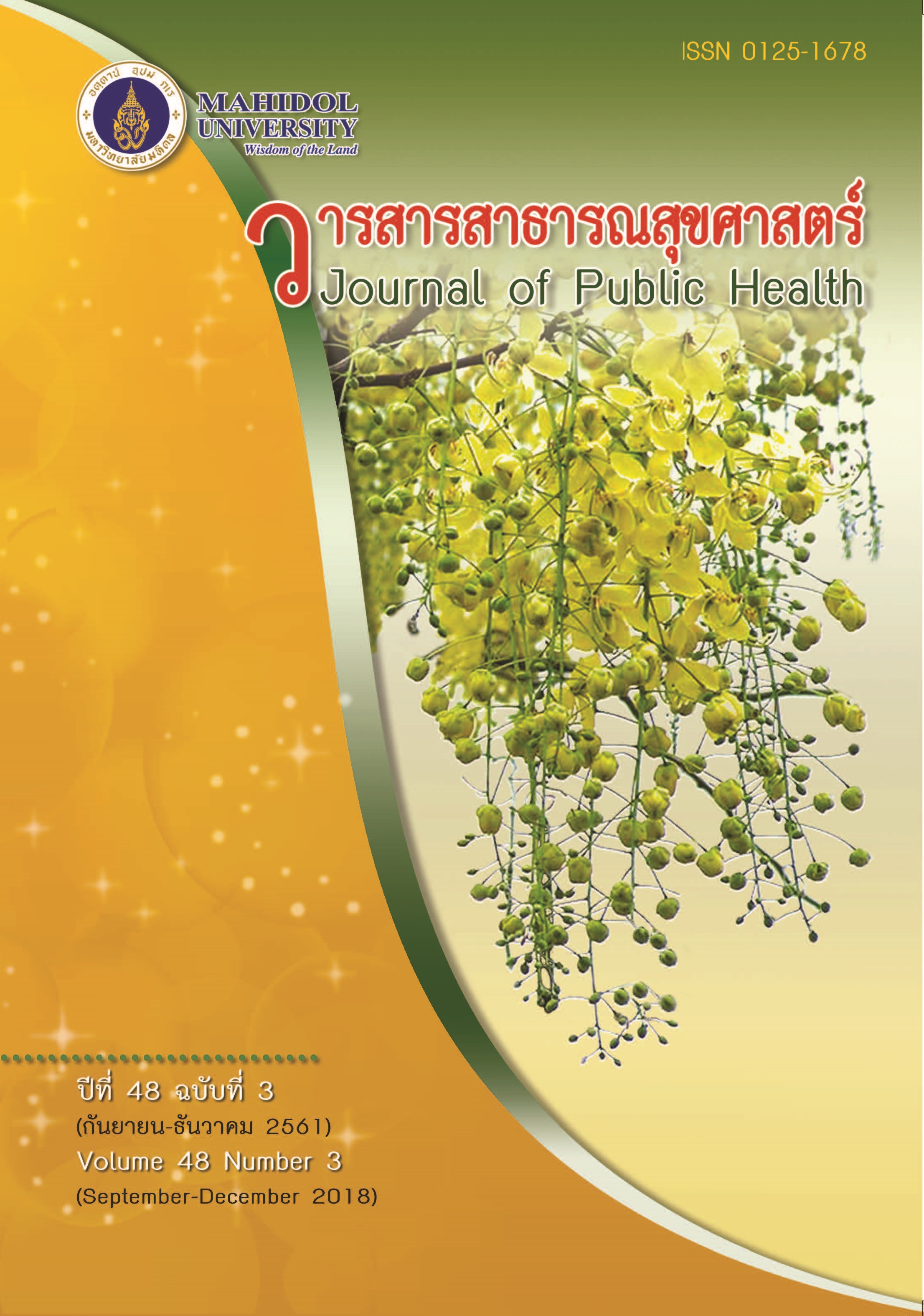Effects of Self–efficacy and Parenting Styles upon Grade 4 - 6 Students with Low and Average Academic Achievement
Keywords:
self-efficacy, academic self-efficacy, parenting style, academic achievementAbstract
Self-efficacy and parenting styles are important for student’s learning. The objective was to study the effects of self-efficacy and parenting styles upon grade 4 – 6 students. The sample group consisted of 274 students obtained by stratified and simple random sampling who participated in the School Mental Health Project from 3 schools in Bangkok. Participants were divided in 2 groups: students with low academic achievement and those with average academic achievement. The assessments included Academic Self-efficacy Questionnaire and Parenting Style Questionnaire. The results were analyzed using descriptive statistics, Pearson’s Correlation Coefficient and Independent sample t-test. A significant correlation was found between academic self-efficacy and academic achievement at p = 0.01. Neglectful parenting style had a significantly negative correlationship with academic achievement at p = 0.01. On the other hand, authoritative, authoritarian and permissive parenting styles had no correlation with academic achievements. A significant difference was found regarding academic self-efficacy and neglectful parenting style between students who had low academic achievement and those with average academic achievement at p = 0.01. This study suggested that the main caretakers of children should apply these results in creating self-efficacy activities that would help students to learn better and more effectively.
Downloads
Published
Issue
Section
License
Creative Commons License CC-BY-ND

